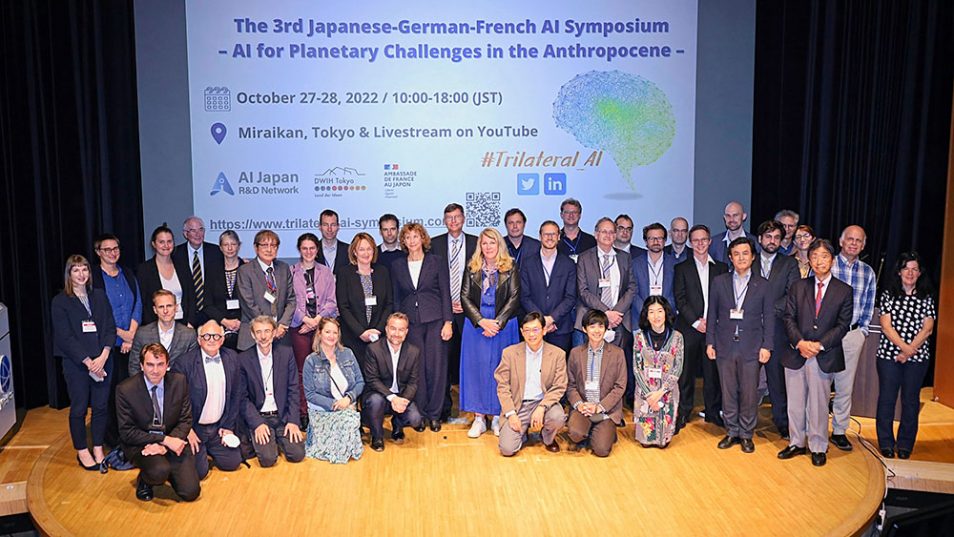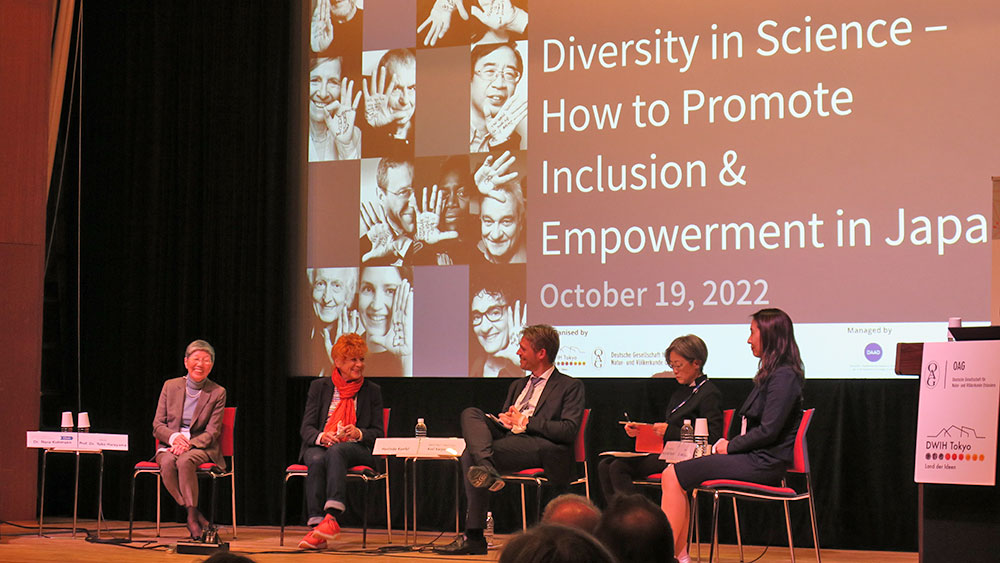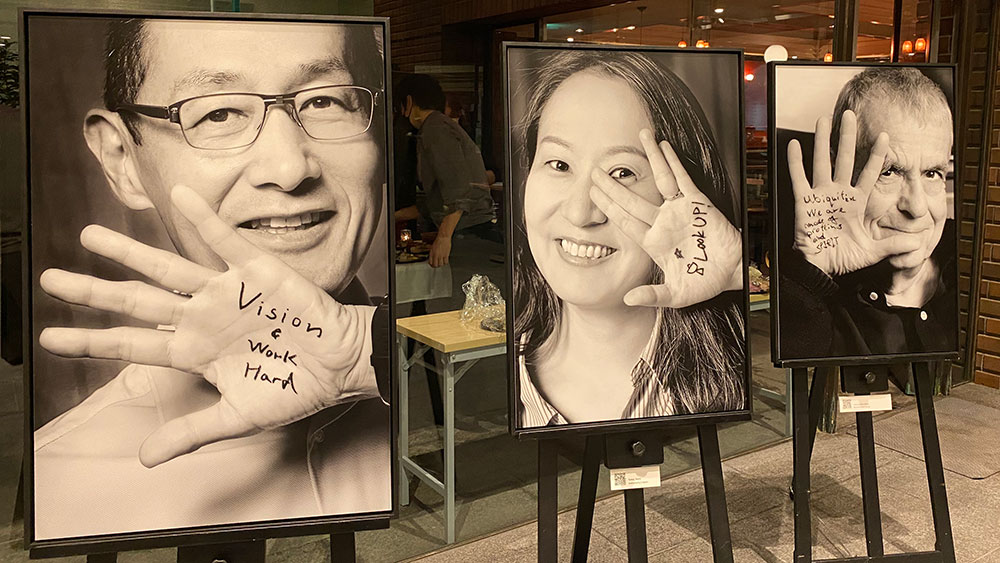In focus: The work of DWIH Tokyo in 2022
 © DWIH Tokyo
© DWIH Tokyo
The activities of DWIH Tokyo in 2022 particularly reflected the diversity of German-Japanese interaction in the area of science and innovation, with topics ranging from artificial intelligence and gender equity to biodiversity.
Artificial intelligence in a diverse range of areas
The highlight of 2022 for DWIH Tokyo was the 3rd Japanese-German-French Symposium on Artificial Intelligence (AI). Under the title “AI for Planetary Challenges in the Anthropocene”, some 60 representatives from the areas of academia, business and politics discussed ways of using AI to create more sustainability in society. The spectrum of topics ranged from medicine and smart cities through to agriculture. The event was held in Tokyo on 27 and 28 October and attracted more than 300 people. Most of Japan’s strict pandemic-related entry restrictions had been lifted just a few weeks before. “It was the first large-scale in-person event in more than two years – you could literally feel how eager people were to get networking again!” says DWIH Tokyo’s Head of Programs, Dr Laura Blecken: “What we were particularly pleased about was that our supporters organised a number of other events related to the symposium so as to ensure more in-depth engagement with the topic – including alumni meetings and talks, for example.”
Diversity, inclusion, empowerment
The panel discussion “Diversity in Science – How to Promote Inclusion & Empowerment in Japan” was also held in October and likewise met with a great response. Women are underrepresented in science in most countries. In Germany, less than 30 per cent of professorships are held by women, while in Japan the share is even lower. “It’s definitely an issue in Japanese media – yet a lot of participants told me they’d never been to a public event on diversity in science before,” recalls Laura Blecken: “So this dialogue really was important.” The event included presentations of strategies and methods that aim to achieve greater gender equality at universities. The keynote speech was given by Professor Kaori Hayashi, Vice President of the University of Tokyo. Japan’s leading university has set itself the goal of increasing its share of women in teaching to 25 per cent by 2027 and doubling the number of female professors.

Focus on femtech
Women have always been disadvantaged in medicine: for a long time, specifically female health topics such as menstruation, pregnancy and menopause were treated as secondary issues in research. That is changing: numerous start-ups in the femtech sector are now specialising in innovations dedicated to female health. Under the title “FemTech: Empowerment through Innovation?”, DWIH Tokyo joined forces with the Japanese-German Center Berlin (JDZB) to organise an online event in March 2022 on the question of how innovations of this kind can contribute to empowering women and achieving greater gender equality. The event gave rise to a cooperation with the Japanese start-up fermata, which organised the world’s largest trade fair for the industry in Tokyo in September, entitled “FemTech Fes!” With support from DWIH Tokyo, a German start-up was also able to participate that has developed a device women can use to measure their hormone levels themselves. Another German start-up is to be invited to the femtech trade fair in 2023.
The importance of biodiversity
The DWIH Coffee Talks series continued in 2022: these are one-hour online discussions on current topics from German-Japanese research. The success of the Coffee Talk on “Protecting Biodiversity through Science and Innovation” in May 2022 reflected the enormous interest in the topic of sustainability. Professor Julia Sigwart from the Senckenberg Naturmuseum in Frankfurt, Professor Tomohiro Ichinose from Keio University in Tokyo and Professor Stefan Hotes from Chuo University in the Japanese capital discussed current developments in Japanese-German biodiversity research. The topics were the discovery of a snail species in the deep sea, using drones to monitor bird movements, and the interaction between human activities and ecosystems on land. The Coffee Talk attracted enormous interest, with over 9,000 views to date.
The German-Japanese fascination with science
Together with the German East Asiatic Society (OAG), DWIH Tokyo brought the exhibition “Fascination of Science” to Japan in 2022. For this project, German photographic artist Herlinde Koelbl – who travelled to the exhibition opening in October – took more than 60 portraits of scientists around the world. For the Japan premiere she expanded the collection to include portraits of Japanese Nobel Prize winner Professor Shinya Yamanaka and astrophysicist Dr Nami Sakai. After a stopover at Kyōto University, “Fascination of Science” will be on show in 2023 at Miraikan, the National Museum of Emerging Science and Innovation in Tokyo – a world-renowned science museum that attracts several hundred thousands of visitors every year.

Miriam Hoffmeyer
